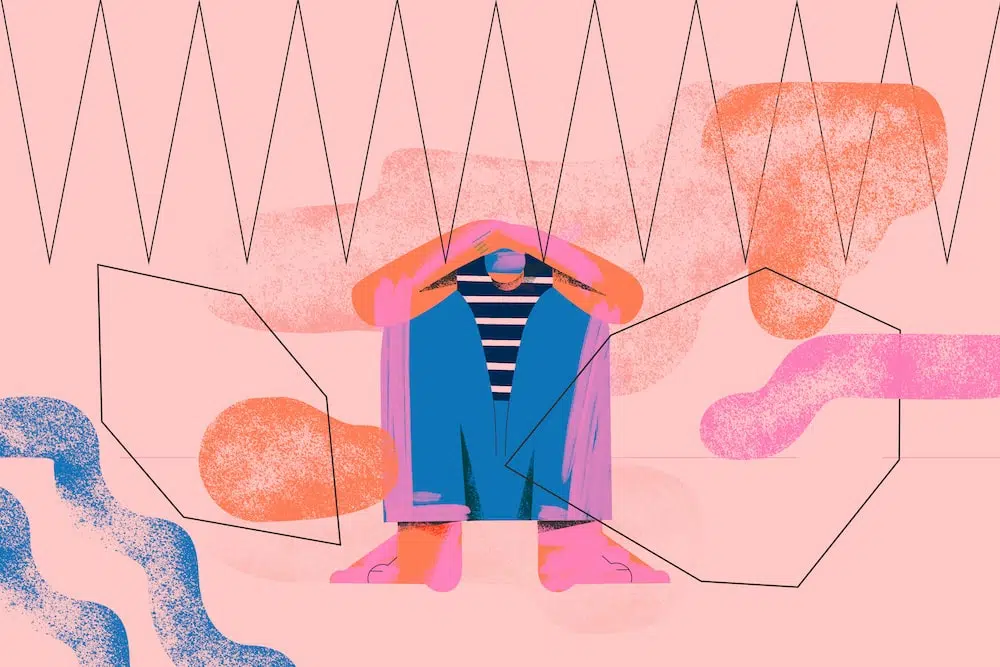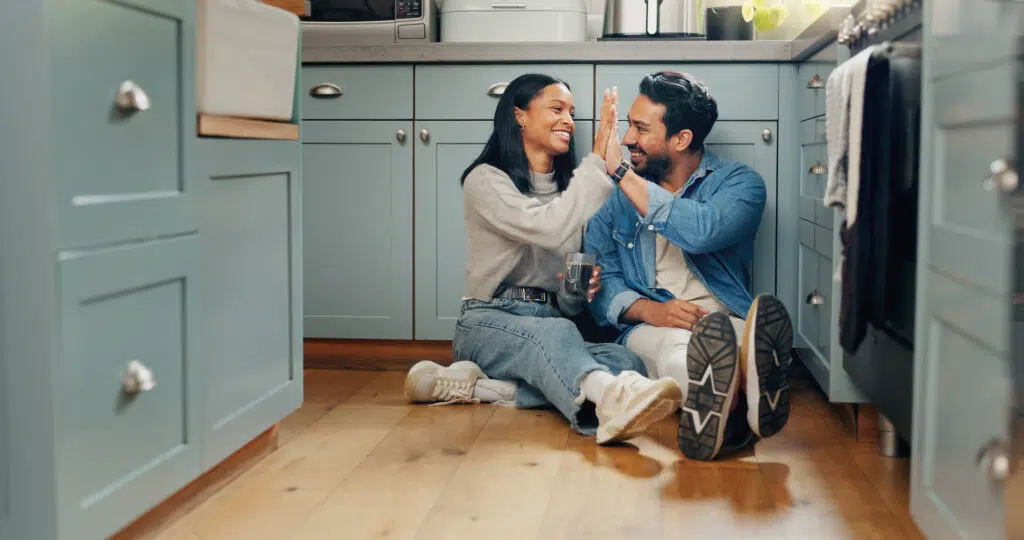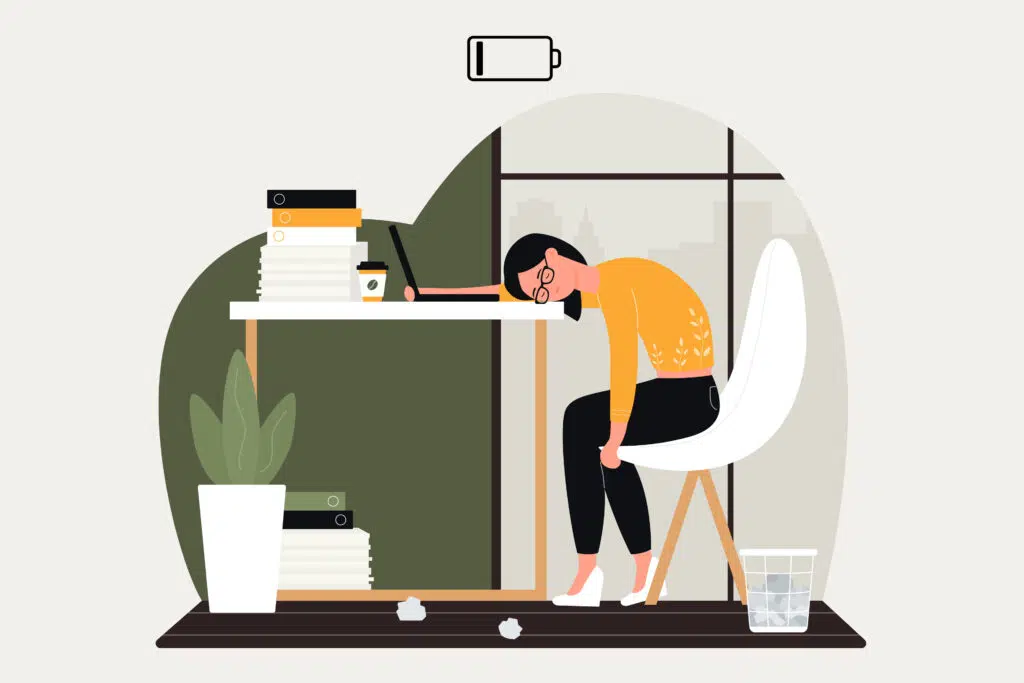How to Stop an Anxiety Attack

Pounding heart, shortness of breath, and an intense feeling of anxiety – anyone who has experienced an anxiety attack will be all too familiar with the sudden sensation of impending doom. Anxiety attacks can feel frightening and overwhelming. So, what do you do when an anxiety attack occurs? In this article, we talk about how to stop an anxiety attack and what steps you can take.
What is an Anxiety Attack?
An anxiety attack is a sudden and intense feeling of fear and anxiety. In general, the episode occurs in response to a situation or trigger like a stressful event or significant life change.
The exact symptoms of an anxiety attack can change from one person to another. You may experience some or several of the following symptoms during an anxiety attack:
- Overwhelming anxiety
- Hot flashes or chills
- Nausea or stomach cramps
- Trouble breathing or hyperventilating
- Heart palpitations
- Lightheadedness
- Shaking
The thing about an anxiety attack is that the physical symptoms can feel very challenging to the point where you feel like you have no control. A big event or even smaller situations that build up may trigger excessive anxiety.
How Long Does an Anxiety Attack Last?
Even though an anxiety attack can feel intense and dangerous, it will end. When you experience chest pains and heart palpitations, it can feel like you can’t breathe.
Technically, anxiety can build up for hours or days before you feel an anxiety attack. In general, the actual intense episode of an anxiety attack can last from a few minutes to up to thirty minutes. It’s common for the attack to peak at about ten minutes, so this is the part where it would feel the most intense before tailing off.
It’s important to say that anxiety attacks can be mild, moderate, or severe. So, the symptoms you experience can vary. But a good rule of thumb is that anxiety attacks will likely peak halfway through the episode. It’s unusual for an anxiety attack to last more than thirty minutes. After an anxiety attack, it’s normal to worry about having another one, especially in a public place or in a situation where you feel like you can’t escape.
5 Steps: What to Do During an Anxiety Attack
When you’re in the middle of an anxiety attack, it feels like the last thing you can do is think logically or rationally about how to make it stop. It’s very difficult to escape how you feel at that moment. Here’s how to calm an anxiety attack from an expert.
- Focus on Your Breath
Dr. Tirrell De Gannes, Psy.D., a Licensed Clinical Psychologist in New York, says, “this seems counterintuitive and may be controversial, but; make it worse. Try to match the breathing pattern on purpose and breathe faster, mentally imagine that you’re warmer than you are if you’re feeling hot, if you’re trembling, start to shake a little more, think of more tangential thoughts if you are having a flight of ideas.
Let me explain.
Once you’re having an anxiety attack, you are in it, and a lot of focus goes into trying to soothe yourself, but that can and often does insight more anxiety if it does not work right away. If you lean into the response, much like driving into the skid of a car on ice, you actually are becoming more mindful of your sensations and then become more able to slowly reduce the physiological symptoms as they arise, which allows for you to regain control sooner.”
- Shift Your Thinking
Although it’s hard, try to maintain a positive outlook. It’s impossible to control everything and sometimes, you can’t control how you respond to a situation or event. Accept how you feel without judgment and try not to fight it.
- Sit Somewhere Safe
If you’re driving, pull over. Sit down and find somewhere safe to ride out an anxiety attack. You can still walk about if you feel like you want to; just avoid performing any actions that could be dangerous during an anxiety attack.
- Find a Distraction
Splash some water on your face, re-focus your mind away from the current situation, and think about putting all your energy into your breathing and nothing else. If you only think about your feelings of anxiety during an anxiety attack, it may intensify the symptoms.
- Remind Yourself that it Will Pass
“Always know that the anxiety attack will end whether you want it to or not,” says Dr. Tirrell De Gannes.
Keep telling yourself that how you feel during an anxiety attack will stop. Those intense feelings and physical symptoms will end. There is no sure way to end an anxiety attack immediately, but it will end eventually. You will find your breath, and your heart rate will return to normal.
What is the Difference Between Panic Attacks and Anxiety Attacks?
There’s a fair amount of overlap between panic attacks and anxiety attacks. One of the main differences is that anxiety attacks usually have a clear trigger. Whereas panic attacks typically occur suddenly out of nowhere and usually last for a few minutes. A panic attack is a sudden and intense feeling of fear that occurs without an obvious cause or response to danger.
Both panic and anxiety attacks share symptoms like hot flashes, heart palpitations, chest pain, and lightheadedness. In general, panic attacks are more intense, while anxiety attacks can range from mild to severe.
How Thriving Center of Psych Can Help
During an anxiety attack, the aim is to cope and move through what you’re feeling. So, these steps focus on getting you through an intense anxiety episode. Following an anxiety attack, it’s essential to seek help so that you can learn to manage your anxiety more effectively. Anxiety attacks usually occur because someone is very fearful or worried about an event or situation, or they may have an anxiety disorder.
It’s important to know anxiety is a normal human emotion that we all experience at some point. But if you’re experiencing anxiety attacks and intense feelings of worry, then you should speak with a mental health professional.
Dr. Tirrell De Gannes says, “working with an experienced therapist would be recommended for simulating and then reducing the symptoms in a timely manner.
Having a calming presence with no bias is invaluable. You may also be able to address underlying reasons for having high anxiety and develop methods for addressing those reasons.”
Working with an expert to understand anxiety and your triggers can help you find tools so that you can cope and manage how you feel. Knowing how to stop an anxiety attack is useful in the moment, but the next step is figuring out how to prevent them from happening in the first place.
Relaxation techniques, breathing practices, and knowing that your anxiety attack will end are all helpful in riding out an intense episode of anxiety. Speaking to an expert in anxiety can help you to navigate through anxiety treatment effectively.
If you’re experiencing anxiety attacks or think you would benefit from a mental health check-up, speak to Thriving Center of Psychology. Our mental health professionals are experts in anxiety and can help you develop methods and tools to manage anxiety. Book an appointment or call our offices.

How to Build a Consistent Routine That Combats Depression
Depression can feel like a pit you can’t escape from, but know that depression is treatable with the right help. A basic daily ritual encourages healthy habits like a regular sleep schedule, healthy food choices, and exercise that support mental health.

How to Manage Stressful Life Transitions and Events
From getting into college or having a baby to splitting from a spouse or experiencing the death of a loved one, life can surprise you with big wins and tear you down with loss. Life is filled with transitions, some happy, others stressful and difficult.

How Long Does it Take to Recover from Burnout?
If you’ve reached burnout, it describes a state of complete emotional, physical, and mental exhaustion. Between heavy workloads, toxic work environments, economic uncertainty, and a poor work-life balance, burnout is a very real problem that can affect all aspects of your health.

What is Mindfulness Therapy?
Mindfulness therapy involves using mindfulness techniques to increase awareness and learn to manage emotions more effectively. These techniques include paying attention to the present moment without judgment.




